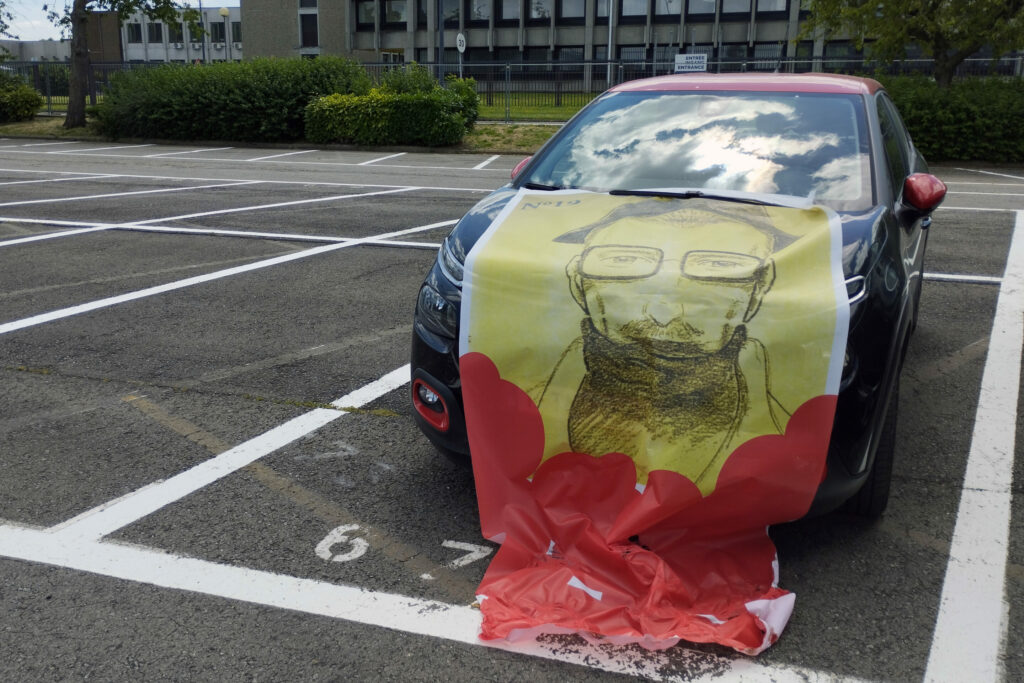The Belgian authorities on Friday announced their decision to officially close the investigation into the Brabant Killers. Despite over 40 years of police work, no light has ever been shed on one of Belgium's biggest unsolved mysteries.
The Federal Public Prosecutor's Office officially announced its decision to close the investigation during a press conference on Friday. The Brabant Killers (les Tueurs du Brabant in French, de Bende van Nijvel in Dutch) committed a series of murders and violent robberies across Belgium in the 1980s, before abruptly disappearing.
"We can only note that no active investigative steps have yet been taken in this case," said Federal Prosecutor Ann Fransen.
Despite the gang killing 28 people (including children) and injuring over 40 between 1981 and 1985, none of its members have been caught and convicted – or even identified – to this day. Their motives also remain unknown, with the initial police investigation into the case widely criticised for being chaotic and careless. The case was adapted into a television series entitled 1985, which was later bought by 8 countries.
'Crushing blow'
For years, the killers held all of Belgium in their grip, with many believing that police corruption played a large part in the case – either by being actively involved in the crimes or by covering them up afterwards, or both.
The fact that the case is now being closed without solving it is widely considered a failure of the justice system. Federal Prosecutor Fransen said that the victims and families of the victims had already been told about the closure of the case ahead of the press conference.
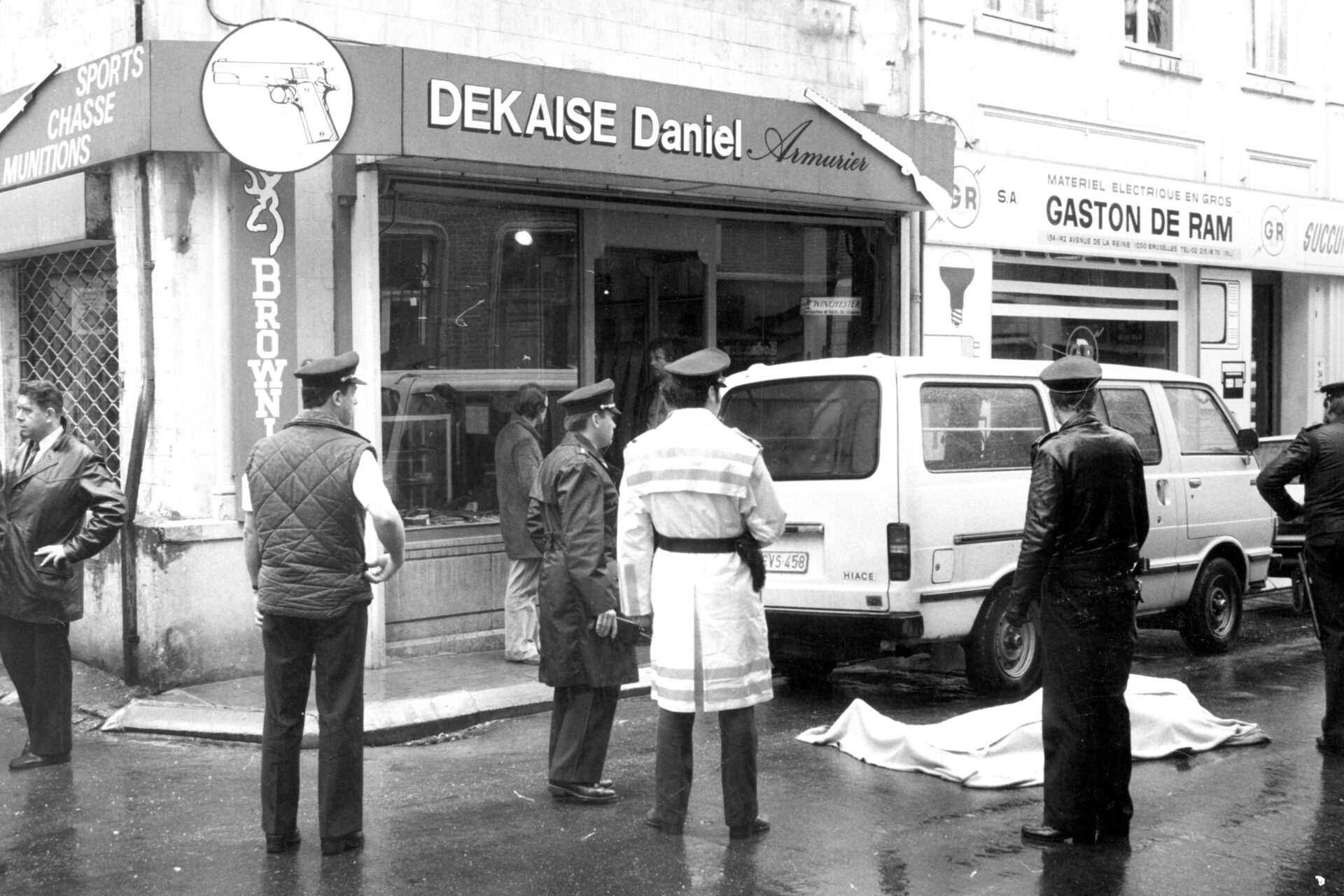
Brabant killers, a group (or groups) responsible for the attacks of supermarkets, restaurants, stores and weapon through Walloon Brabant depots between 1982 and 1985. Credit: Belga Archives
"It is a message that is not pleasant to convey or to hear," she said. "We are aware that this is a crushing blow for the victims and we have enormous compassion for them."
"Years of intense research and constant efforts have not produced the results we all expected," Fransen added. She emphasised that particularly over the past five years, investigating judge Martine Michel and about a dozen investigators assigned exclusively to this case "meticulously" re-explored all the leads and followed up new ones.
She explained that 1,815 items of information have been verified over the years, and new means of investigation and all modern scientific methods have been used. "A total of 593 DNA samples were taken and compared. An in-depth ballistics investigation of weapons and shell casings was also carried out."
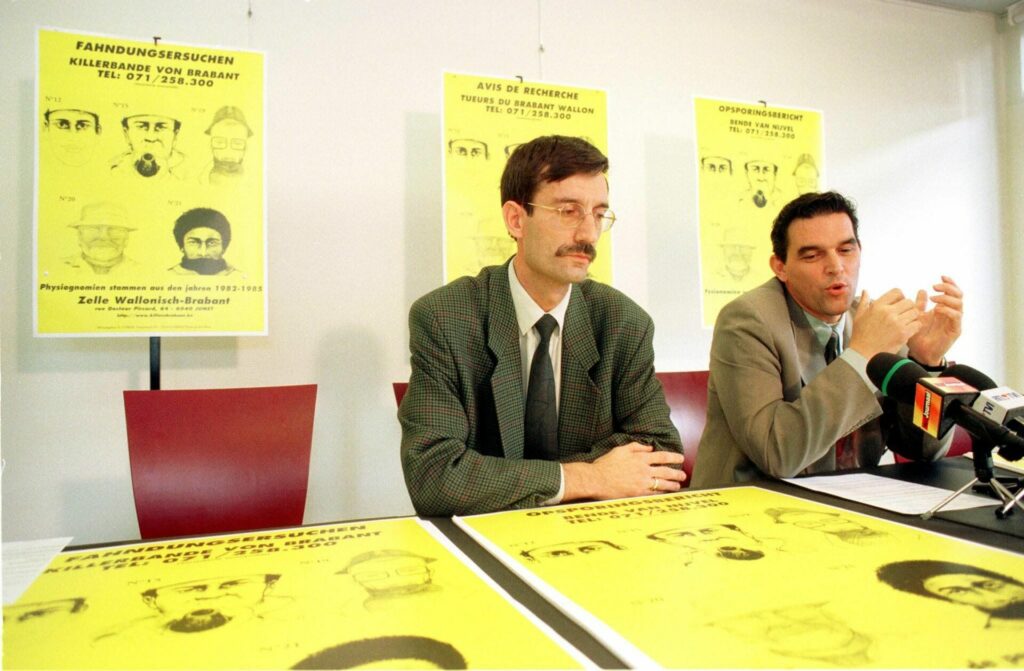
Police press conference in 1998 releasing new sketches of suspected members of the Brabant Killers. Credit: Belga / Geert Vanden Wijngaert
Even with the case closed, however, victims will still be able to consult the file and possibly request additional investigative steps – even though there is no guarantee that the Council Chamber grant the request. Additionally, since the statute of limitations has expired, the investigation could be relaunched, but only if a serious new element comes to light, which is unlikely after so many years of fruitless research.
Two-million-page police file
The gang's killings remain one of the most important unsolved cases in Belgian legal history. After decades of research and their share of errors, multiple arrests without results and new investigations in the light of genetic analyses, the mystery remains unsolved.
The last known attack occurred in the winter of 1985 when a robbery of a Delhaize supermarket in the Flemish city Aalst resulted in eight deaths, making it the bloodiest attack officially attributed to the Brabant Killers. After that, the gang abruptly ceased their activities, seemingly disappearing into thin air.
The investigation into these events should have been statute-barred 30 years after the last robbery (which would have been December 2015), but a change in the law gave investigators the option of extending the investigation until 2025, and indefinitely thereafter.
Still, the Federal Public Prosecutor's Office, which took over the two-million-page file in 2018, had already announced in August 2022 that the investigation would be halted if no real progress was made in the following months.
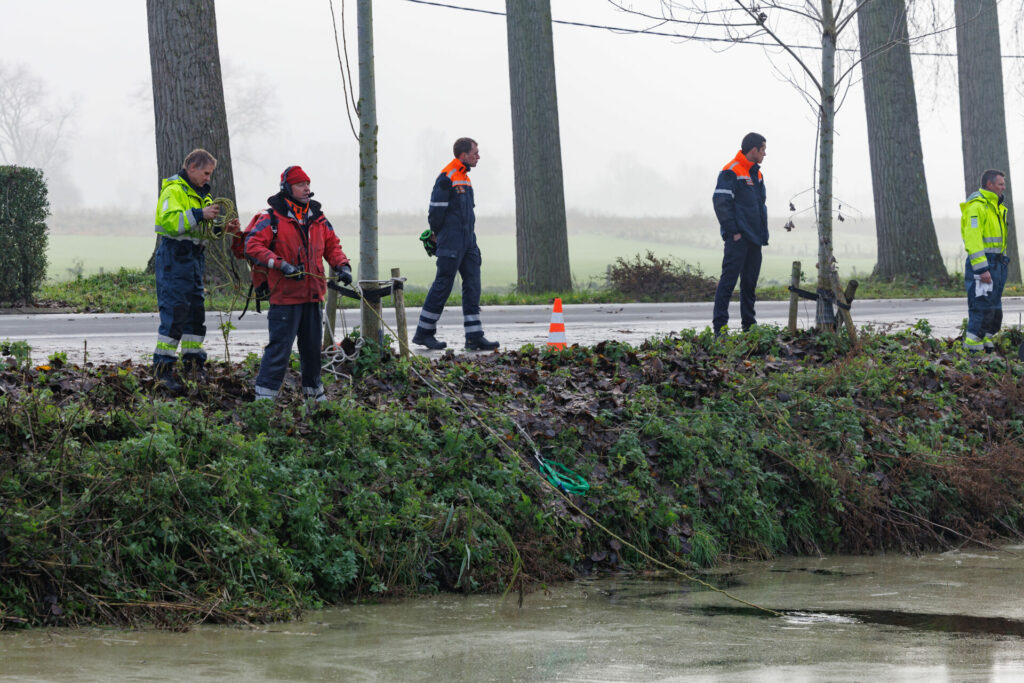
Police search for evidence in the case of the Brabant killers in the Damse river in Damme. Credit: Belga/Kurt Desplenter
While the decision was not entirely unexpected, it remains a bitter pill to swallow for many victims and relatives, said David Van de Steen. He was seriously injured in the Aalst Delhaize attack when he was 9 years old and lost both his parents and his sister. After the press conference, he denounced an "incompetent and corrupt judicial system."
Van de Steen deliberately did not attend Friday's meeting. "I stubbornly refuse to have to listen like a little child to what I can or cannot believe about their investigation," he wrote on social media.
"At 48, no one needs to tell me how corrupt things have been for 40 years," Van de Steen said. "The political and noble families are protected to this day. Anyone who says otherwise can join the 'Federal Prosecutor's Office'. I cannot and will no longer allow myself to be taken for a ride by an incompetent and corrupt judicial system."
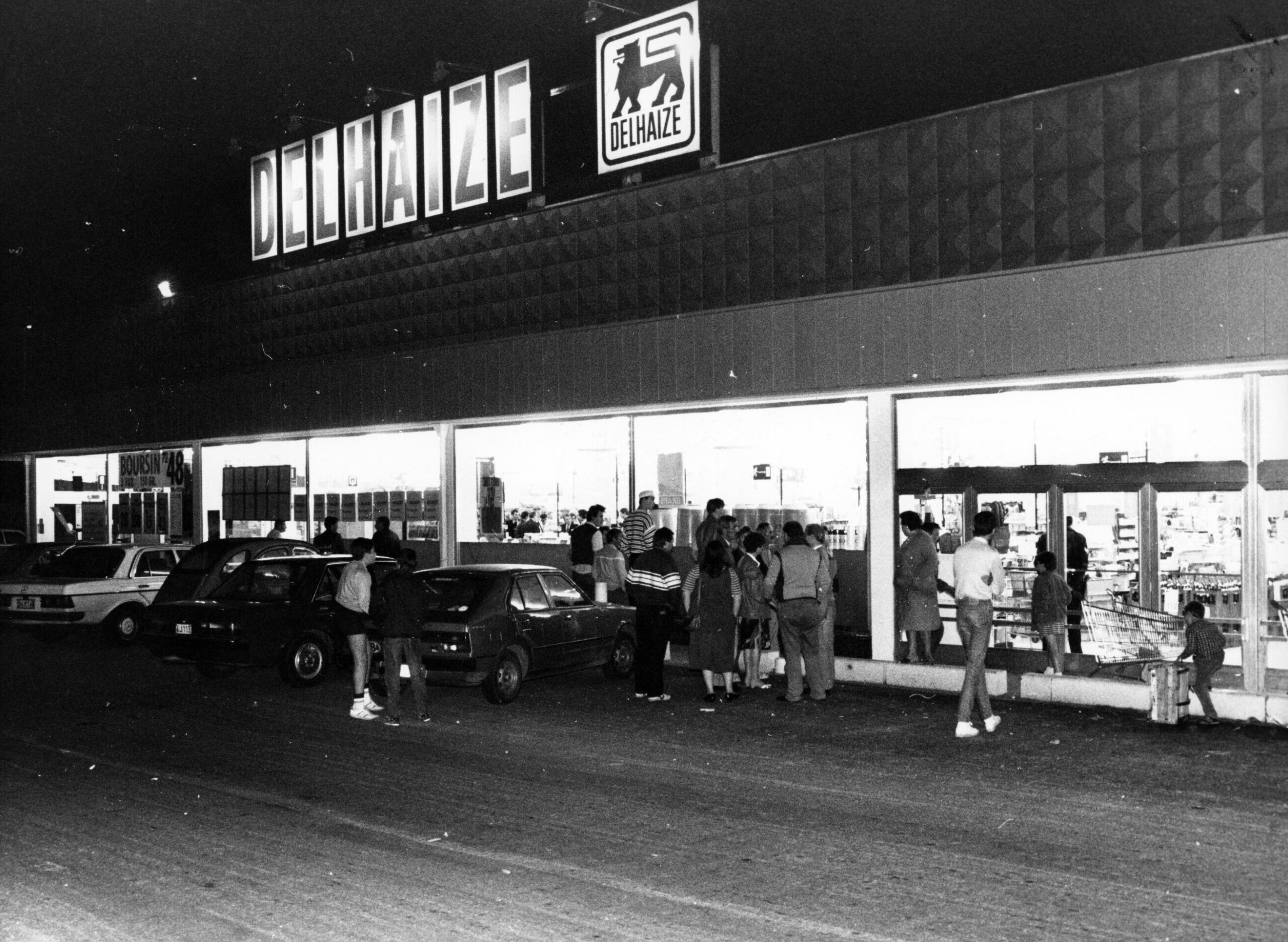
The attack of a Delhaize supermarket at Braine l'Alleud. 3 casualties, 27 September 1985. Credit: Belga Archives
Lawyer Kristiaan Vandenbussche, who represented several people who were victims of the killers, told Belga News Agency that he was disappointed. "We, the families, must accept this announcement, but it is not an acceptable decision. Justice has failed to find the culprits. I have no words for that."
In particular, he denounced the attitude of the Gendarmerie (Belgium's now-dissolved national military-based police force, which is believed to have been involved in the crimes) at the start of the investigation. "These are the people who have to protect the victims. It was the Gendarmerie who sabotaged the investigation and that's the problem."
Another victim, Christine Nijs, lost her brother and niece in the same Aalst robbery when she was 24, and now said she is disappointed that she will never get answers, even if she expected the decision. "The injustice is great. We do not agree with this decision, nor should we. It is not like we can say 'thank you for everything you have done.' We will see what we can do now."

